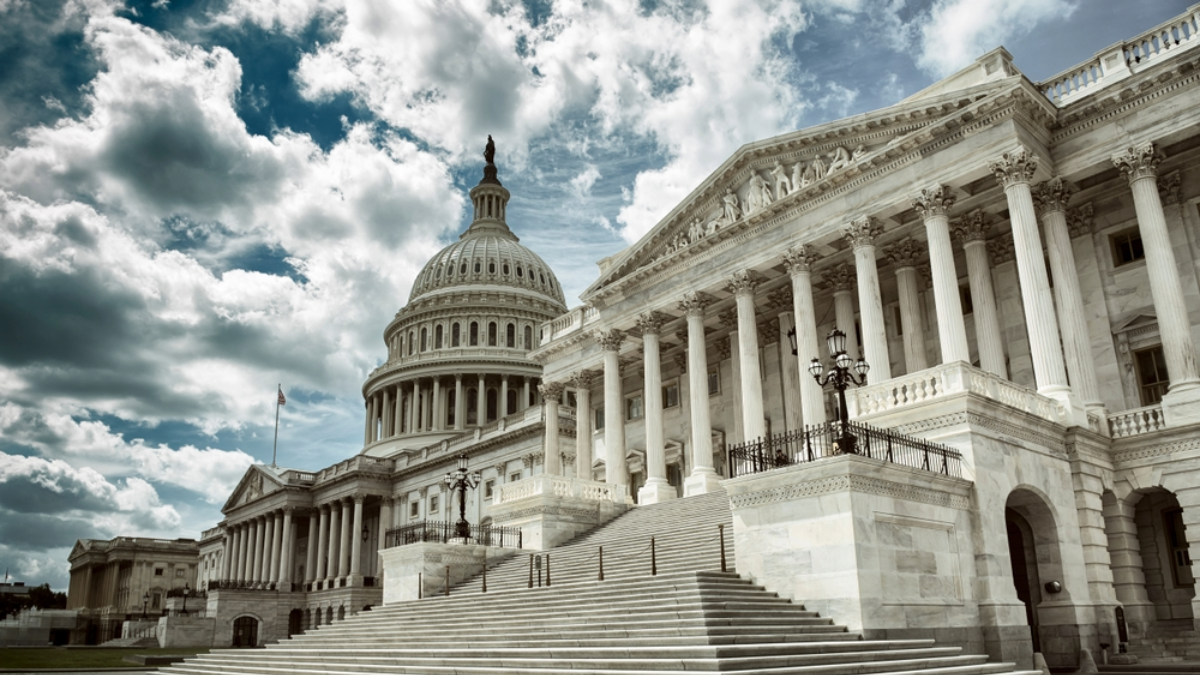US House Passes 10-Year Moratorium on State AI Laws
Justin Hendrix, Cristiano Lima-Strong / May 22, 2025
The US Capitol in Washington, DC.
The United States House of Representatives early Thursday narrowly passed a budget bill that, if enacted, would ban states from enforcing laws regulating artificial intelligence for 10 years.
In a largely party-line vote of 215 to 214, House Republicans approved the so-called “One Big, Beautiful” bill, or H.R. 1, which includes a range of GOP priorities on taxes and immigration and promises to usher in President Donald Trump’s domestic agenda.
If signed into law through the process, known as reconciliation, the 10-year moratorium on state AI laws would mark one of the most significant federal actions on technology policy in decades.
Supporters of the moratorium say it would stop a confusing patchwork of state AI laws that have cropped up nationwide and give Congress space to craft its own AI legislation while preserving American leadership. Opponents call it a dangerous giveaway to tech firms that would leave consumers — particularly vulnerable communities and children — unprotected and wipe out a flurry of state laws that address everything from deepfakes to discrimination in automated hiring.
Now, the bill advances to the Senate, where its fate is deeply uncertain. Democratic lawmakers are expected to challenge House Republicans’ inclusion of the AI moratorium in the reconciliation package under what’s known as the Byrd Rule, which prohibits the inclusion of provisions that are “extraneous” to the federal budget in the reconciliation process.
House Republicans tucked the measure into a section ordering the Commerce Department to deploy funds to “modernize and secure Federal information technology systems through the deployment of commercial artificial intelligence.” The measure has remained largely unchanged since its consideration by the House Energy and Commerce Committee earlier this month, though lawmakers on the House Committee on Rules recently added an exemption so that the moratorium would not apply to the enforcement of any law that “carries a criminal penalty.”
Widely rejected by Democrats, the push is also facing opposition from some Senate Republicans, who would largely need to unite on the legislation to get it passed. At a Senate hearing Wednesday, Sen. Marsha Blackburn (R-TN) poured cold water on the idea, expressing concern that the bill would override legislation to protect artists from deepfakes in her state.
“Speaking to the states and their actions, I do want to mention that Tennessee passed the ELVIS Act, which is like our first generation of the NO FAKES Act,” said Blackburn, “And we certainly know that, in Tennessee, we need those protections, and until we pass something that is federally preemptive, we can't call for a moratorium on those things.”
Sen. Josh Hawley (R-MO) has also pushed back on the proposal, according to Punchbowl.
The measure was debated at a House subcommittee hearing Wednesday after it advanced out of the House Energy and Commerce Committee last week.
“A patchwork of various state laws is not good for innovation, for business or consumers, and that is what we’re trying to avoid,” Rep. Russ Fulcher (R-IN) said Wednesday.
“Make no mistake, the families who have come to this committee and begged for us to act won't benefit from this proposal,” said Rep. Lori Trahan (D-MA) added at the subcommittee hearing. “But you know who will? The Big Tech CEOs who are sitting behind Donald Trump at his inauguration."
The measure is supported by tech industry and business groups such as the US Chamber of Commerce, as well as some free-marketed oriented think tanks. It has been opposed by dozens of state lawmakers and attorneys general, including both Democrats and Republicans, in addition to many civil society organizations focused on tech policy and consumer rights.
“Costly, contradictory regulation is a surefire recipe for destroying a technological revolution and decimating little tech innovators,” Adam Thierer, a senior fellow at the R Street Institute, testified at the House subcommittee hearing Wednesday. “An AI moratorium offers a smart way to address this problem by granting innovators some breathing space and helping ensure a robust national AI marketplace develops.” Thierer proposed the idea of a moratorium in a post on R Street’s website last year.
Another witness at the hearing, Amba Kak, co-executive director of the AI Now Institute, took a different view.
"This is an industry that has fooled us once, and we cannot let them fool us again with AI in this environment. The proposal for a sweeping moratorium on state AI-related legislation really flies in the face of common sense,” she said. “We can't be treating the industry's worst players with kid gloves while leaving everyday people, workers and children exposed to egregious forms of harm."
Authors

